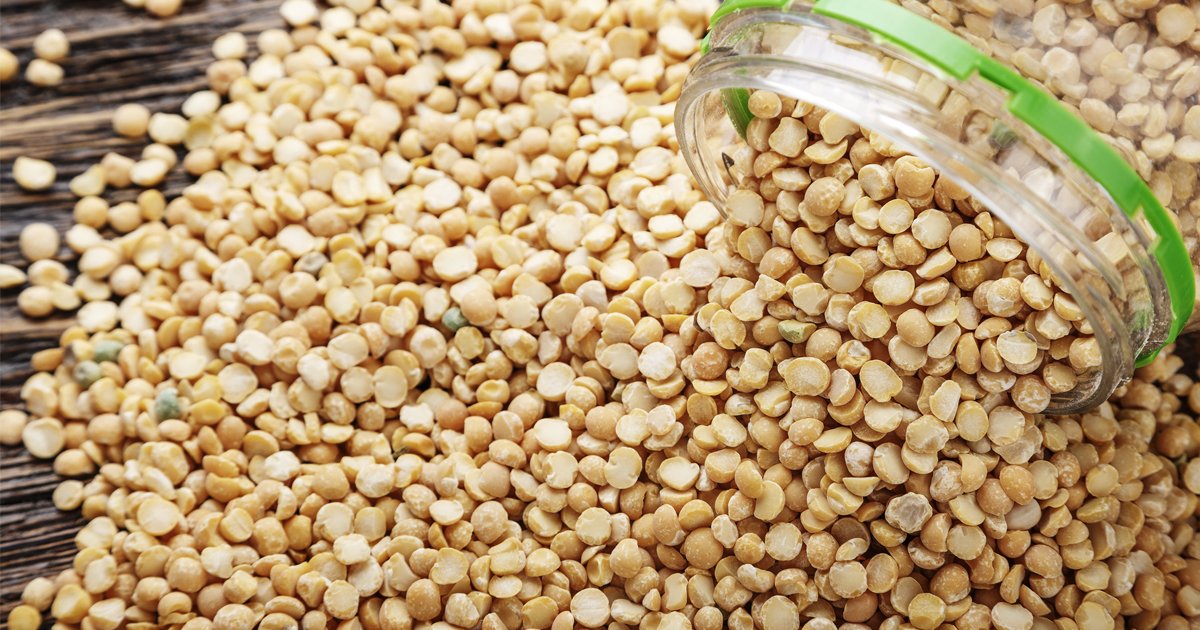Plant Protein vs Animal Protein—Everything You Need to Know

Lately, more and more people are incorporating plant-based proteins into their diets and decreasing meat consumption. And more people than ever are adopting vegetarian and vegan lifestyles. That said, many other people are still focused on consuming “high quality” meat products either for taste preferences, or because they believe them to be nutritionally superior. So what’s the difference between plant protein versus animal protein? Read on to learn everything you need to know about Plant Protein vs Animal Protein.
Table of Contents
- Amino Acids and Protein In Plant Protein and Animal Protein
- Animal Protein, Plant-Protein, and Chronic Disease
- Proteins and The Environment: Is Meat Sustainable?
Amino Acids and Protein In Plant Protein and Animal Protein:
Amino acids¹ are the building blocks of protein, and 20 amino acids are needed by the human body. Of the 20 amino acids, 9 are considered 'essential,' meaning they must be obtained through the diet. The other 11 amino acids can be synthesized in the body. Yes, you do need all 20 amino acids.
Animal proteins tend to deliver all of the amino acids you need in one food. But you don’t have to get all amino acids in one sitting to reap the benefits.
For years, it was believed that plant proteins were somehow inferior to animal protein. It was widely believed that plant proteins could only be “incomplete” proteins – meaning they lacked one or more of the the essential amino acids – and that in order to be “complete,” one would have to carefully construct meals to get a full range of amino acids. This is where the whole “you need to eat rice and beans together for complete protein” idea comes from.
While eating rice and beans together is certainly delicious, science has since debunked the myth that you need to consume all amino acids simultaneously to benefit from protein. It is now widely accepted that you can consume various forms of plant foods with different amino acid profiles separately (spaced out throughout the day, across a few days, etc.) and still get adequate use of dietary protein.
By eating a robust, varied diet full of different plant-proteins, you can get a full range of the amino acids that your body needs, even as a vegan. Nuzest Clean Lean Protein has a complete panel of amino acids.
Animal Protein, Plant-Protein, and Chronic Disease:
The World Health Organization (WHO)² currently classifies red meat as a Group 2A carcinogen, meaning that it is probably carcinogenic to humans (meaning they believe red meat might cause cancer), based on limited evidence from epidemiological studies and associations between red meat consumption and the development of certain cancers, including colon cancer.
Additionally, processed meat³ is classified as a Group 1 carcinogen, meaning it is cancer-causing to humans based on sufficient human data. Limiting intake of red and processed meat could be beneficial in lowering cancer risks.
Furthermore, epidemiological studies of different dietary patterns have shown that vegetarian and vegan diets are usually protective4 in terms of cancer risk, and that fruit and vegetable consumption5 is associated with lower risk of cancer.
Learn more about our delicious plant-based protein powder! Visit our Clean Lean Protein page for uses, customer reviews, and nutrition information.
Additionally, plant foods often contain free-radical quenching antioxidants, which can help protect your body from harmful oxidative reactions, and are often rich in good-for-you fiber.
Other large observational studies have linked6 red meat consumption with cardiovascular disease and processed meat with increased risk of cardiovascular-related deaths, as well as increased risk of Type 2 Diabetes7.
The amount of red and processed meat you consume makes a difference. But you don’t have to go fully vegan if you don’t want to in order to benefit from plant-based foods.Even if you love meat, cutting back on animal proteins from processed and red meat sources may be beneficial against these diseases, especially if you replace meat with nutrient-rich plant foods such as legumes, nuts, beans, whole grains, and fruits and vegetables.
Proteins and The Environment: Is Meat Sustainable?
Meat is notorious for having a large carbon footprint. Producing just one kilogram of beef8 (or 2.2 pounds) emits a hefty 26 kilograms of carbon dioxide. Lamb emits even more carbon dioxide: roughly 39 kilograms of CO2 per kilogram of meat. Furthermore, livestock emit methane (another greenhouse gas) from burps, farts, and poop.
To complicate things further, grass fed meats tend to emit even more greenhouse gases compared to factory-farmed meats as they lack comparable efficiency in terms of land-use and resources.
Plant proteins typically produce far fewer carbon emissions. For example, a kilogram of lentils emits 0.7. kilograms of carbon dioxide (CO2), a strikingly lesser amount than livestock production. Furthermore, they tend to have a much smaller water footprint, making them an overall more sustainable food choice.
Even if you’re a fan of meat, swapping some animal protein for plant-based protein may be not only beneficial your health, but it can help you shrink your carbon footprint and it’s better for the environment. To add more plant-based protein to your diet, check out Nuzest Clean Lean Protein or other products in the Nuzest lineup.
References
- https://www.ncbi.nlm.nih.gov/books/NBK234922/
- http://www.who.int/features/qa/cancer-red-meat/en/
- http://www.who.int/features/qa/cancer-red-meat/en/
- https://pdfs.semanticscholar.org/bcbf/c80844b7e61b2ae805ef9a37fb15e36e6ccd.pdf
- https://pdfs.semanticscholar.org/bcbf/c80844b7e61b2ae805ef9a37fb15e36e6ccd.pdf
- https://www.hsph.harvard.edu/nutritionsource/what-should-you-eat/protein/
- https://www.ncbi.nlm.nih.gov/pubmed/21831992
- https://www.nrdc.org/sites/default/files/less-beef-less-carbon-ip.pdf









